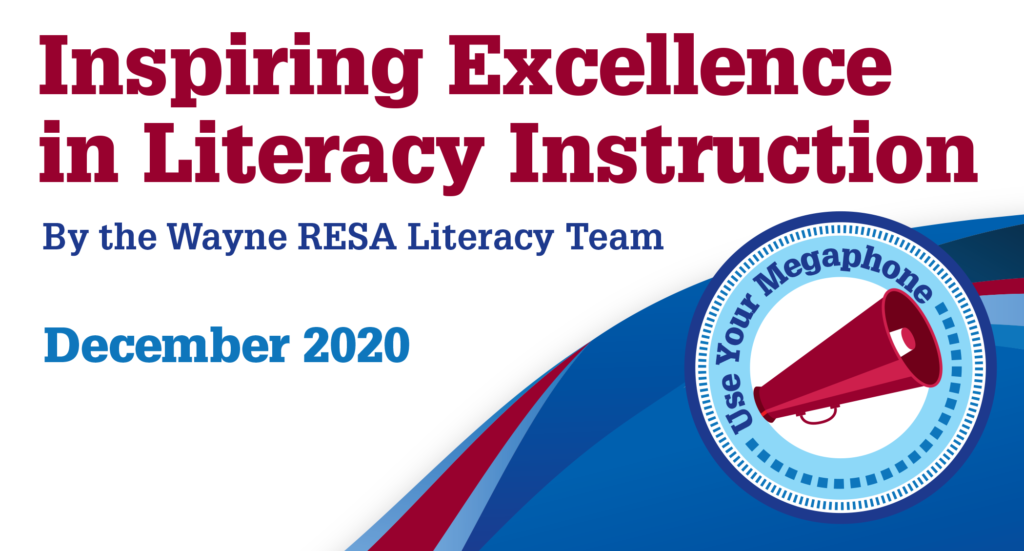
This newsletter has been created by Wayne RESA literacy consultants for literacy educators. In each issue, you will find Literacy Learning Network updates and information, statewide initiative updates, book synopses, teaching and coaching strategies, and upcoming professional learning opportunities. We look forward to partnering with you as we engage in best practices in literacy instruction for all students.
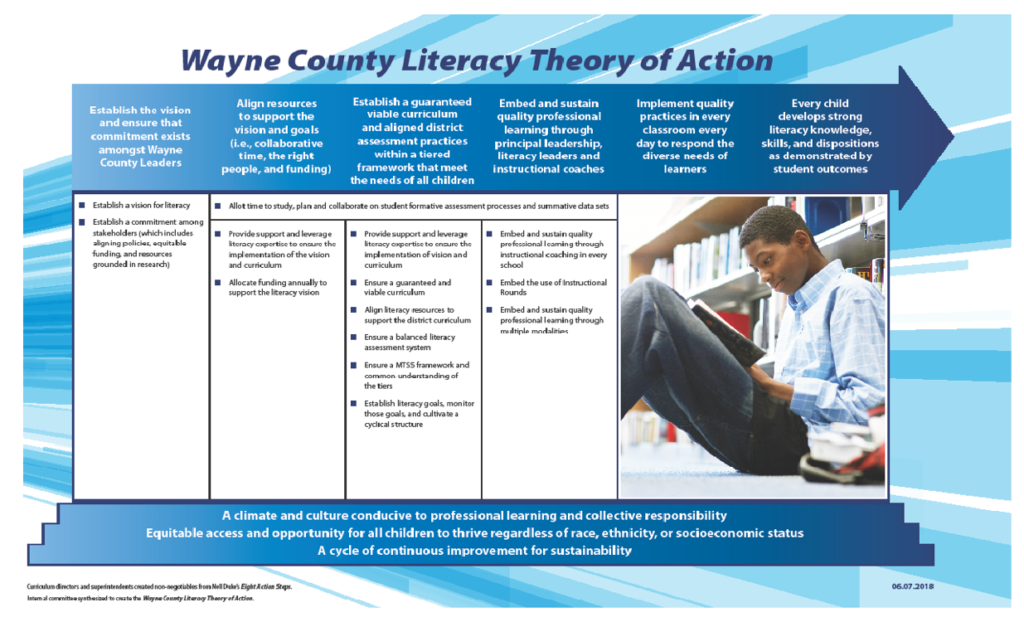
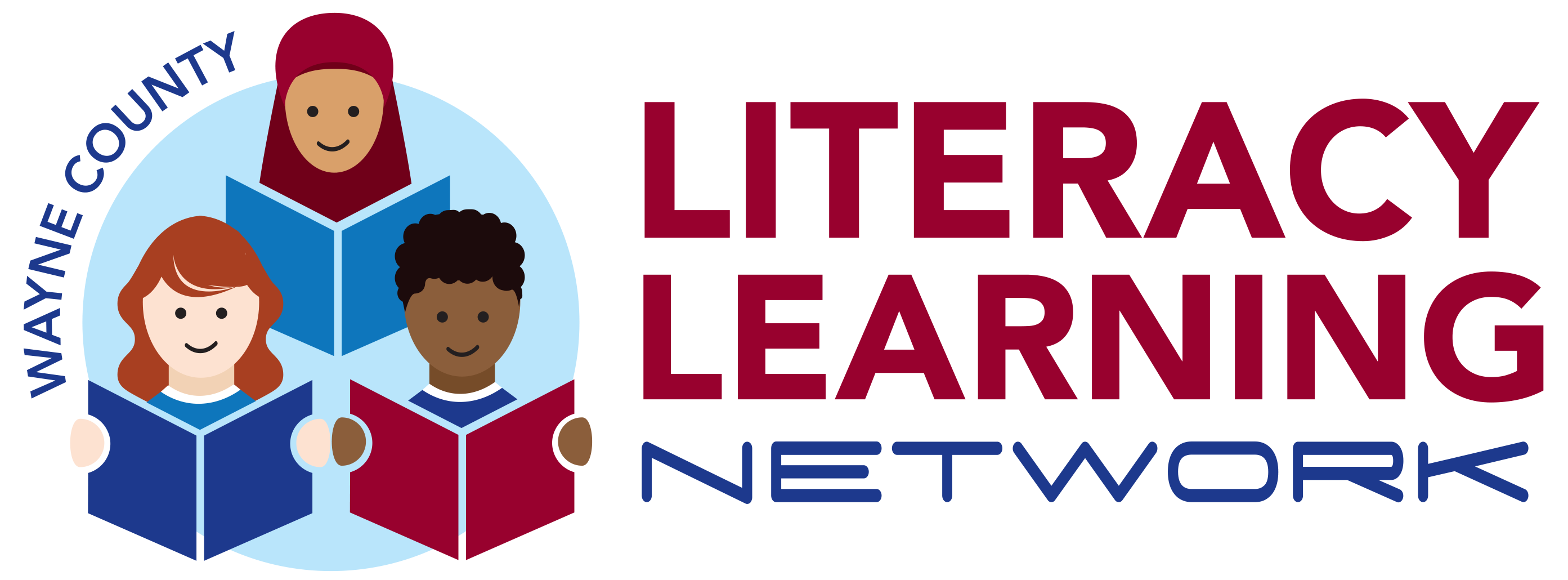
Updates
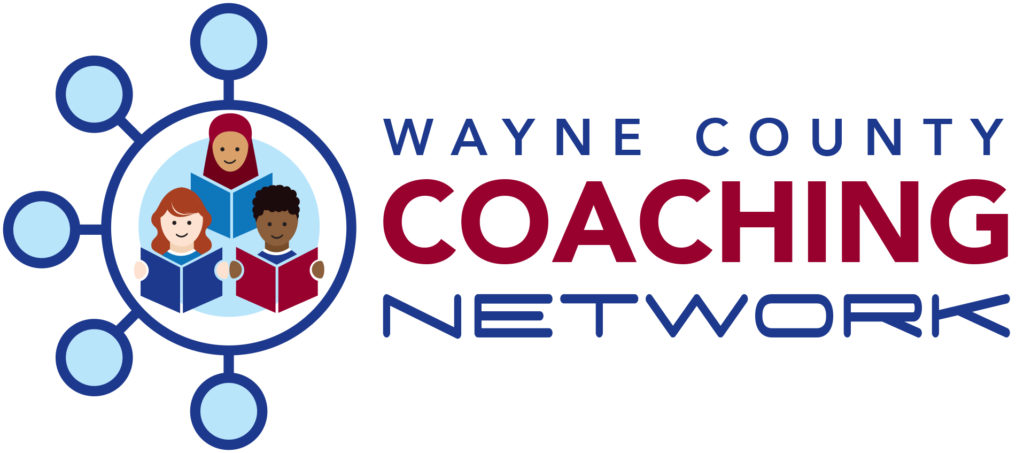
Literacy Coaching in Wayne County

In 2019, Governor Gretchen Whitmer announced that she would triple the number of literacy coaches statewide, and she has held to her promise. In fact, there were 306 literacy coaches present at the most recent ISD Early Literacy Coaching Network meeting, held virtually in the beginning of December. Governor Whitmer’s proposed 2021-2022 budget has again allocated funds to promote and sustain literacy coaching in Michigan. In Wayne County, more than 100 coaches belong to the Wayne County Coaching Network. These coaches meet five times a year to network and learn together as they expand their coaching skills and dispositions. Among those in the Wayne County Coaching Network are the COSAs (Coaches on Special Assignment). Many of the COSAs are new to literacy coaching and have therefore engaged in intensive learning around the Essential Instructional Practices in Early Literacy and the Essential Coaching Practices for Elementary Literacy. The COSAs meet four times a year to continue their professional learning as they acclimate to their new district roles. The two groups overlap in their most pressing objective: to improve the literacy skills of students in Wayne County. Despite a global pandemic, these coaches have continued to work “at the elbow” with teachers, regardless of instructional mode, and to date have collected thousands of data points aimed at improving literacy teaching and learning.
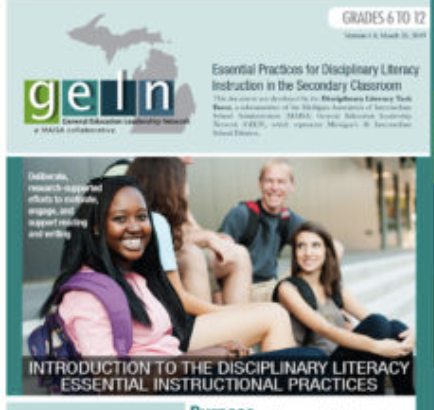
Disciplinary Literacy: Engaging Secondary Students
In the past year, the Disciplinary Literacy Task Force has been busy! A collaborative group, including Task Force members and key researchers, created a webinar to introduce educators throughout the state to the Essential Practices for Disciplinary Literacy Instruction in the Secondary Classroom. Additionally, three introductory institutes provided both face-to-face and virtual learning opportunities. To expand these initial sessions, two cohorts launched the Deeper Dive Institute in October and will engage in synchronous and asynchronous learning around disciplinary literacy for the remainder of the year. To support teacher learning, the Disciplinary Literacy for Secondary Leaders modules, created in partnership with MASSP, provide opportunities for district and building leaders to extend their understanding of disciplinary literacy and its positive impact upon instruction and student engagement in secondary classrooms. Finally, members of the Task Force worked with researchers this summer to draft School- and Center-wide Practices in Literacy for grades 6-12. If you are interested in learning more about disciplinary literacy and/or the Essential Practices for Disciplinary Literacy Instruction in the Secondary Classroom, there are multiple ways to stay informed: the DLTF blog, newsletter, and/or professional learning flyer.
Statewide Updates





Books and Strategies
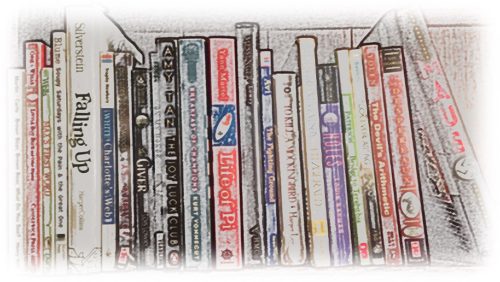
Book Talk
Igniting Passion in Readers of All Ages
Sulwe
Lupita Nyong’O
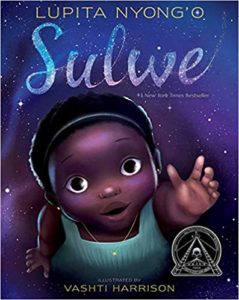 Actress Lupita Nyong’O sweetly crafts the story of beautiful Sulwe, a child who can only see her inadequacies. Sulwe struggles with her skin tone, which is darker than that of her family and schoolmates. One night, she learns the myth of two sisters: Night and Day. In the tale, Night feels much the same was Sulwe does, and she leaves Day to fend for herself. Day knows that the two must always be together, so she goes to comfort her tormented sister. Sulwe realizes that the world needs beauty of all kinds, and her confidence is restored.
Actress Lupita Nyong’O sweetly crafts the story of beautiful Sulwe, a child who can only see her inadequacies. Sulwe struggles with her skin tone, which is darker than that of her family and schoolmates. One night, she learns the myth of two sisters: Night and Day. In the tale, Night feels much the same was Sulwe does, and she leaves Day to fend for herself. Day knows that the two must always be together, so she goes to comfort her tormented sister. Sulwe realizes that the world needs beauty of all kinds, and her confidence is restored.
Toning the Sweep
Angela Johnson
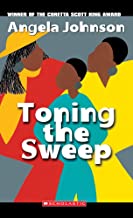 Emily is on her way to California to pick up her grandma, Ola. Ola is terminally ill and will soon be living with Emily and her mom. In the days leading up to the final move, Emily decides to video record her grandmother and her grandmother’s friends as a way to capture the many memories they share. Along the way, Emily stumbles upon a family truth that has driven a wedge between her mama and Ola, leading to a deeper understanding and appreciation of both women.
Emily is on her way to California to pick up her grandma, Ola. Ola is terminally ill and will soon be living with Emily and her mom. In the days leading up to the final move, Emily decides to video record her grandmother and her grandmother’s friends as a way to capture the many memories they share. Along the way, Emily stumbles upon a family truth that has driven a wedge between her mama and Ola, leading to a deeper understanding and appreciation of both women.
Darius the Great Is Not Okay
Adib Khorram
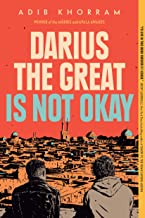
Darius Kellner is the typical misfit teen; he loves Star Trek and carefully brewed tea. He feels disconnected from his “Übermensch” father, who always seems to handle situations with a cool detachment. Life changes drastically for Darius, though, when he and his family travel to Iran to visit his dying grandfather. Despite the bittersweet reason for the trip, Darius meets Sohrab, an Iranian boy his age. Their budding friendship is a turning point for Darius as he works to sort out his feelings about family and himself.
Sadie
Courtney Summers
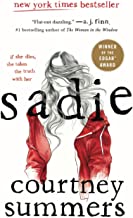 Courtney Summers has readers on the edges of their seats in this mystery-thriller that positions Sadie on a manhunt for her sister’s killer. Searching for clues, Sadie journeys from city to city, asking about her prime suspect. Summers cleverly juxtaposes Sadie’s story with a radio broadcast entitled “The Girls.” As the narrative moves back and forth between Sadie and radio personality West McCray, the details of a horrifying childhood are exposed along with the killer’s identity.
Courtney Summers has readers on the edges of their seats in this mystery-thriller that positions Sadie on a manhunt for her sister’s killer. Searching for clues, Sadie journeys from city to city, asking about her prime suspect. Summers cleverly juxtaposes Sadie’s story with a radio broadcast entitled “The Girls.” As the narrative moves back and forth between Sadie and radio personality West McCray, the details of a horrifying childhood are exposed along with the killer’s identity.
How to Be An Antiracist
Ibram X. Kendi
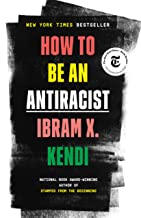 Ibram X. Kendi’s journey toward becoming an antiracist runs parallel to his parents’ experiences in the early 1970s. Despite very different social and political landscapes, Kendi and his parents have sought equitable opportunities and just treatment for people of color. While the book is steeped in history, legal battles, and various legislative policies, Kendi’s integration of relatable anecdotes engages readers in deep self-reflection about the various definitions that continue to frame an understanding of race, racism, and antiracism.
Ibram X. Kendi’s journey toward becoming an antiracist runs parallel to his parents’ experiences in the early 1970s. Despite very different social and political landscapes, Kendi and his parents have sought equitable opportunities and just treatment for people of color. While the book is steeped in history, legal battles, and various legislative policies, Kendi’s integration of relatable anecdotes engages readers in deep self-reflection about the various definitions that continue to frame an understanding of race, racism, and antiracism.
Collaborative Inquiry for Educators
Jenni Donohoo
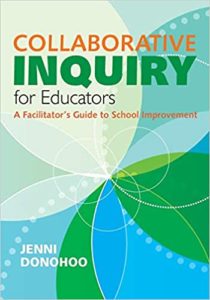 Donohoo guides educators through the collaborative inquiry process, including problem framing, data collection and analysis, and reporting and reflecting upon the findings. Since many educational problems have multiple potential solutions, Donohoo urges educators to engage in the collaborative inquiry process to “examine educational practices” and come to agreed upon solutions. This book is a great companion to the Essential Practices for Disciplinary Literacy Instruction in the Secondary Classroom that encourage students to engage in the same practice.
Donohoo guides educators through the collaborative inquiry process, including problem framing, data collection and analysis, and reporting and reflecting upon the findings. Since many educational problems have multiple potential solutions, Donohoo urges educators to engage in the collaborative inquiry process to “examine educational practices” and come to agreed upon solutions. This book is a great companion to the Essential Practices for Disciplinary Literacy Instruction in the Secondary Classroom that encourage students to engage in the same practice.
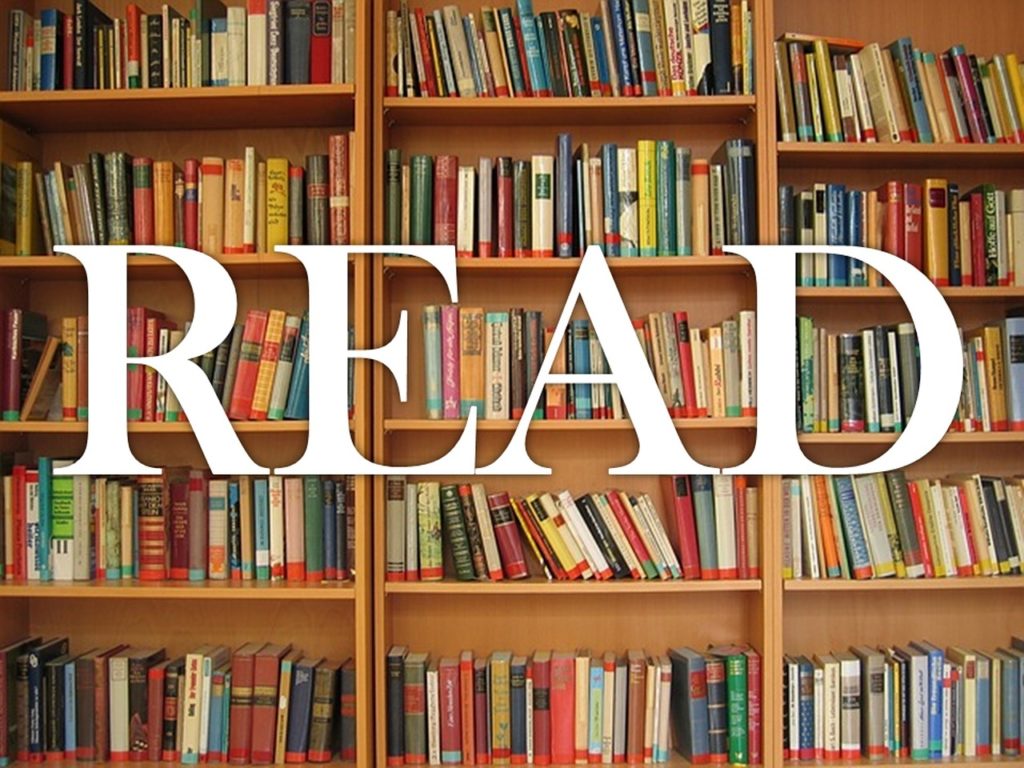
Equity-focused Literacy
Earlier this fall, the Literacy Learning Network sponsored our Equity-focused Literacy Series, and through this generous sponsorship, educators throughout Wayne County and beyond were able to listen to literacy scholars and leaders, including Gholdy Muhammad, Yolanda Sealy-Ruiz, Joe Feldman, Bryan Brown, Julia Aguirre, and Julia Torres. As participants, we explored equitable instructional practices in and across disciplines, assessments, and texts. If you were unable to attend the sessions, you can find some of the recorded sessions on our Professional Learning page. These sessions bring to the forefront a deeper set of questions, however, and perhaps the overarching one is simply: What is equitable literacy instruction? More specifically, how can we design instructional practices to reach all students fairly and without partiality, whether implicit or explicit? Dr. Gholdy Muhammad asserts that “classroom instruction needs to be responsive to [students’] identities” (as cited in Ferlazzo, 2020). This reinforces W. E. B. DuBois’s observation: “there must be sympathetic touch between teacher and pupil; knowledge on the part of the teacher, not simply of the individual taught, but of his surroundings and background, and the history of his class and group” (1935). The #IWishMyTeacherKnew movement activates student identity, and because identity encompasses self and others, in knowing both,
we are able to develop more tolerant and accepting attitudes in students. Additionally, we need to consider our accessibility to students. Even our location sends a message. Are we in close proximity or tucked away in a remote corner? Do students feel comfortable asking questions or seeking feedback? Do we work on including all voices by using a variety of discussion protocols? Beyond inclusive strategies, maintaining high expectations and rigor sets forth the belief that “students can” instead of “students can’t.” As Dr. Muhammad explains, it is more that just skills and intellect that we seek to nurture. We must also foster criticality, which “is the capacity and ability to read, write, think, and speak in ways to understand power and equity in order to understand and promote anti-oppression” (as cited in Ferlazzo, 2020). Criticality is a call to action, however small or big. We empower students when we help them set goals and take steps toward achieving them (Barrett, 2018). As we strive to embody equity in teaching and learning, we cannot forget to impart a love for reading, writing, listening, and speaking. Finally, in modeling our own literacy practices and revealing how literacy has shaped our identities, we show students the value of these practices in the classroom and in life.
Noteworthy News
Have you gathered data via a Google Form? As you most likely know, you can review the responses within the form itself, or you can generate a spreadsheet. However, did you know that you can use the Explore feature in Google Sheets to generate various data graphics, such as pie charts or bar graphs? This short tutorial explains how you can organize and use gathered data to suit your purposes.

Professional Learning
| Upcoming Events at Wayne RESA |
| See the Professional Growth pages on the Wayne RESA site for links to course offerings, their descriptions, and online registration in Learning Stream. All professional learning sessions will be provided virtually until December 31, 2020. At that time, Wayne RESA will reevaluate delivery platforms that ensure the health and safety of our presenters and participants. If the registration for an event does not indicate an alternative plan for professional learning prior to December 31, please contact any of the Literacy Team members for updated arrangements. |
| Elementary |
| Developing and Nurturing the Identities of Young Literacy Learners: February 19 OR February 26 |
| What does it mean to be a reader or a writer? Why is it so important that young children develop strong identities as readers and writers? How can we support children’s language development and independence through their interactions with books and resources for writing? These questions and more will be considered as participants explore ways to effectively support children’s early literacy development using information gleaned through ongoing observation of children’s interactions with print and engagement in literacy-focused conversations with adults. Video examples and collaborative activities will demonstrate strategies to nurture healthy and resilient reading and writing habits and identities using intentional language and conversational moves within a supportive and enriching environment. |
| Leveled Literacy Intervention, K-2: February 1 – 2 and April 14 |
| The Fountas and Pinnell Leveled Literacy Program System (LLI) is a scientifically-based early intervention program designed to prevent literacy difficulties before they turn into long-term challenges. Participants will learn effective small group instructional strategies to provide the intensive support necessary for some primary students to achieve grade level competency in reading and writing. This program also specifically supports the unique needs of English Language Learners. This three-day workshop series will be led by Heinemann Literacy Consultant Dale Severyn, who will share her expertise as a reading specialist and certified Reading Recovery teacher leader. Enrollment in this series is limited to 30 participants, so early registration is recommended. Participants must bring to each session an orange, green, or blue LLI grade level kit (not included in this series). The target audience for this workshop is K-2 Teachers and Literacy Interventionists. For additional information, contact Debbie Reeves. |
| Secondary |
| Creating Context for Teaching Night: May 10 |
| In collaboration with the Holocaust Museum, Wayne RESA proudly presents Creating Context for Teaching Night by Elie Wiesel. Participants in this course will explore the following learning outcomes: learn how to prepare students to read and understand Night within the larger historical framework of the Holocaust, examine the history of antisemitism to provide context before students read Night, examine Jewish life in Eastern Europe to provide cultural context for Night, explore the use of multimedia assets including using visual history testimonies and other primary sources and materials to support the effective teaching of Night, and discuss and identify themes, life lessons and the current relevance of Night. For additional information, contact Rosalyn Shahid. |
| Culturally Responsive Instruction – Teaching Critical Literacy & Hard History: March 2, March 16, April 15, and April 22 |
| In this four (4) day workshop, participants will gain an in-depth understanding of culturally responsive instruction and how to develop equitable classroom spaces that empower ALL students as learners and emerging citizens. This workshop will help teachers develop an equity lens by discovering and examining their own cultural identity in service of becoming culturally responsive instructors. Using Gholdy Muhammad’s Equity Framework, participants will develop their capacity to understand, develop, and implement culturally responsive lessons that cultivate the genius of ALL students. Culturally Responsive Instruction pursues four goals instructionally by helping students develop their identity, skills, intellect, and criticality. As students engage in culturally responsive instruction, they should demonstrate how that instruction helps them to: 1) Learn something about themselves and/or about others (Identity). 2) Build their skills for the content area they are studying (Skill). 3) Build their knowledge and mental powers (Intellect). 4) Engage their thinking about power and equity and the disruption of oppression (Criticality). Using the content areas of Literacy and Social Studies, teachers will be able to understand and utilize a culturally responsive instructional framework that can be applied to any content area. This workshop will be followed by seminar/practicum cohort Culturally Responsive Instruction (Level 2) which will explore implementation of CRI classroom strategies and practices in the classroom setting. For additional information, contact Rosalyn Shahid. |
| Teaching Anne Frank in the ELA Classroom: Context, Choice, and Meaningful Action: April 14 |
| In collaboration with the Holocaust Museum, Wayne RESA proudly presents Teaching Anne Frank in the ELA Classroom: Context, Choice, and Meaningful Action. Participants in this course will explore the following learning outcomes: Understand the historical context within which Anne Frank and her family were living, develop a rationale for teaching Anne Frank, use resources and strategies to meet the unique challenges that arise when teaching Anne Frank that can be used to effectively and responsibly teach about the Holocaust, think critically about complex issues and ideas, understand the importance of choice and responsibility, and learn about different ways of taking meaningful and informed action. The intended audience for this course is language arts and social studies teachers. For additional information, contact Rosalyn Shahid. |

Resources: Where can I find...
Looking for ways to mix up your feedback comments? Try recording and attaching them via the comments feature in Google or Word documents. Mote and Vocaroo are two easy-to-use applications that allow students to hear your thoughts and suggestions. Students can replay the comments as often as they would like when revising their assignments.
Wayne RESA Literacy Team
Meet Dr. Rosalyn Shahid

Dr. Rosalyn Shahid is an English Language Arts Consultant, an adjunct instructor, a former Board Member of the Michigan Reading Association, a Representative-at-Large on the Michigan Council of Teachers of English, an active member of the MAISA GELN Disciplinary Literacy Task Force, and a lover of books. She also serves as the secondary-level Content Lead for our state’s largest district, Detroit Public Schools Community District; as a Cass Tech graduate, she is particularly passionate about this role. In every capacity, Dr. Shahid is a literacy advocate. The primary aim of her research and practice is to build teacher capacity, and by extension, empower students through adolescent literacy instruction. Her work examines the interconnectedness of adolescent literacy instruction, equity pedagogy, and disciplinary literacy. Dr. Shahid holds a Bachelor of Arts from the University of Michigan, a Master of Education in Reading and Reading Specialist Endorsement (K-12) from Marygrove College, and a Ph.D. in Reading and Language Arts from Oakland University. Her wealth of knowledge and expertise makes her invaluable to Wayne County and to ongoing work at the state level.
We look forward to hearing from you!
Laura Gabrion
Debbie Reeves
Bridget Regan
Rosalyn Shahid
Mary-Lu Strimbel
Mari Treece
Michelle Wagner
Colleen Whalen
Mellissa Wilson
If this newsletter has been forwarded to you, and you’d like to subscribe to it, please contact Laura Gabrion.
![]() 33500 Van Born Road • Wayne, MI 48184 • 734.334.1300 • 734.334.1620 fax • www.resa.net
33500 Van Born Road • Wayne, MI 48184 • 734.334.1300 • 734.334.1620 fax • www.resa.net
Board of Education
James S. Beri • Mary E. Blackmon • Danielle Funderburg • Lynda S. Jackson • James Petrie
Randy A. Liepa, Ph.D., Superintendent
“Use Your Megaphone”: Inspiring Excellence in Literacy Instruction Read More »